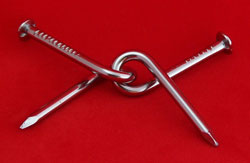
Editor’s Note: We are honored to publish the following guest post by Zoe Weil. Zoe is the President of the Institute for Humane Education (IHE) and author of Above All, Be Kind: Raising a Humane Child in Challenging Times and Most Good, Least Harm: A Simple Principle for a Better World and Meaningful Life.
Once again, an op-ed writer has created another false either/or about education. In “Critical Thinking? You need knowledge” Diane Ravitch argues against what she describes as faddish efforts to teach critical thinking and cooperative learning in schools. She writes: this “skill-centered, knowledge-free education has never worked.” Personally, after 25 years in education (and alternative education at that), I know no one who is promoting “knowledge-free” education.
At the Institute for Humane Education we’ve identified 4 elements that comprise quality humane education:
1. Providing accurate information about the pressing issues of our time
2. Fostering the 3 Cs of curiosity, creativity, and critical thinking
3. Instilling the 3 Rs of reverence, respect, and responsibility
4. Offering positive choices and the tools for problem-solving
The idea behind these elements is to give students the knowledge, tools, and motivation to become engaged solutionaries for a better world. You might notice that the first element is oriented toward the acquisition of knowledge. Like Ms. Ravitch, I agree that one cannot think critically in a vacuum. We must have something to think critically about. But the current educational trends and the assessment of students through standardized, multiple choice tests on memorized information isn’t all that successful at cultivating knowledge, especially because most students promptly forget so much of what they supposedly learned. Why? Because it’s often boring and irrelevant information that is neither contextualized nor made meaningful. Why, for example, did the AP U.S. History students have to memorize the names and dates of all the presidents before the first day of class this fall? How is this information useful? Wouldn’t it be far more useful to read five of the most important presidential speeches and write about their impact on the nation? But I digress.
You might also notice that providing information is simply the first element we believe is important. That information forms the basis for the subsequent elements, the combination of which helps us become better people, stronger thinkers, more engaged citizens, and, ideally, more successful contributors to a healthier world. What use is knowledge if not for improving ourselves and our society and living well, productively, generously, and conscientiously?
Of course students need to acquire knowledge, but the knowledge that they need grows daily, which is why it is impossible to give it all to them. But it is not impossible to provide them with core knowledge and tools for knowledge acquisition which will allow them to become lifelong learners. They must be able to read, to compute, to be technologically literature, and to have a basic understanding of and appreciation for history, literature, the sciences, the arts, and philosophy. But these basics only bring them to the starting gate. They must become critical and creative thinkers to thrive in our world, and more importantly, to contribute positively; and we must give them these tools in school.
I’m so tired of false either/ors that distract us from real solutions to real problems. I know that strong opinions make for publishable opinion pieces in newspapers, but a bit more critical thinking onRavitch’s part would have been nice.
~ Zoe
This is one of the most critical (yes!) things we can do for our kids. Even in interpersonal relationships (and on out to world peace)! Curiousity does wonders. At all of our ages in life, at every moment, there is more we don’t know. Living lightly on our feet, ready to learn, gives us access to learning.
good knowledge gives you a sense of criticism…